It is proposed that this article be deleted because of the following concern:
If you can address this concern by improving, copyediting, sourcing, renaming, or merging the page, please edit this page and do so. You may remove this message if you improve the article or otherwise object to deletion for any reason. Although not required, you are encouraged to explain why you object to the deletion, either in your edit summary or on the talk page. If this template is removed, do not replace it . The article may be deleted if this message remains in place for seven days, i.e., after 16:18, 26 October 2021 (UTC). Nominator: Please consider notifying the author/project: {{ subst:proposed deletion notify |Sibelius Symphony No. 7 discography|concern=(a) this is a shockingly incomplete list; (b) it is not regularly maintained/updated; (c) other Sibelius symphonies do not have individual discography pages, so I fail to see its reason for being}} ~~~~ |
This article aims to include information on all recordings of Sibelius's Seventh Symphony that have ever been available to the public.
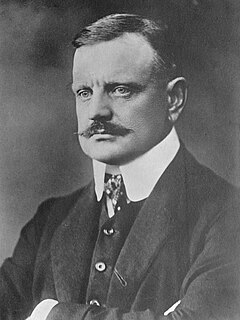
Jean Sibelius was a Finnish composer and violinist of the late Romantic and early-modern periods. He is widely recognized as his country's greatest composer, and his music is often credited with having helped Finland develop a national identity during its struggle for independence from Russia.

The Symphony No. 1 in E minor, Op. 39, by Jean Sibelius is a symphony started in 1898, and finished in early 1899, when Sibelius was 33. The work was first performed on 26 April 1899 by the Helsinki Philharmonic Orchestra, conducted by the composer, in an original version which has not survived. After the premiere, Sibelius made some revisions, resulting in the version performed today. The revised version was completed in the spring and summer of 1900, and was first performed in Berlin by the Helsinki Philharmonic, conducted by Robert Kajanus on 1 July 1900.

Finlandia, Op. 26, is a tone poem by the Finnish composer Jean Sibelius. It was written in 1899 and revised in 1900. The piece was composed for the Press Celebrations of 1899, a covert protest against increasing censorship from the Russian Empire, and was the last of seven pieces performed as an accompaniment to a tableau depicting episodes from Finnish history. The premiere was on 2 July 1900 in Helsinki with the Helsinki Philharmonic Society conducted by Robert Kajanus. A typical performance takes between 7½ and 9 minutes depending on how it is performed.
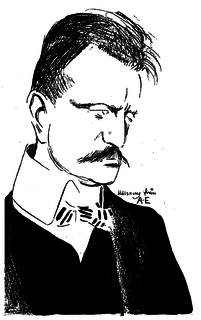
The Symphony No. 2 in D major, Op. 43, by Jean Sibelius was started in winter 1901 in Rapallo, Italy, shortly after the successful premiere of the popular Finlandia, and finished in 1902 in Finland. Sibelius said, "My second symphony is a confession of the soul."

Kullervo, Op. 7, is a suite of symphonic movements by the Finnish composer Jean Sibelius. It is often referred to as a choral symphony. The third and fifth movements make use of a men's chorus. The third, authorized by the composer for performance as an independent work, also calls for two soloists, a baritone and a mezzo-soprano. Based on the character of Kullervo in Elias Lönnrot's epic poem Kalevala and using texts from that poem, the work premiered to critical acclaim on 28 April 1892 with Emmy Achté and Abraham Ojanperä as soloists and the composer conducting the chorus and orchestra of the Helsinki Orchestra Society, which was founded in that year.

En saga, Op. 9, is a single-movement tone poem for orchestra written in 1891–92 by the Finnish composer Jean Sibelius. The piece, which likely began as a septet or octet for flute, clarinet, and string ensemble before evolving into an orchestral tone poem, premiered on 16 February 1893 in Helsinki with Sibelius conducting the Helsinki Orchestral Society. A decade later in 1902, Sibelius substantially revised En saga in response to an invitation from Ferruccio Busoni to conduct the piece in Berlin; the tone poem thus stands alongside the Lemminkäinen Suite, the Violin Concerto, The Oceanides, and the Fifth Symphony as one of Sibelius' most overhauled works. The Berlin concert, which occurred a fortnight after Robert Kajanus had premiered the revised piece in Helsinki on 2 November, finally brought Sibelius the German breakthrough he had long desired.

The Symphony No. 4 in A minor, Op. 63, is one of seven completed symphonies composed by Jean Sibelius. Written between 1910 and 1911, it was premiered in Helsinki on 3 April 1911 by the Philharmonia Society, with Sibelius conducting.
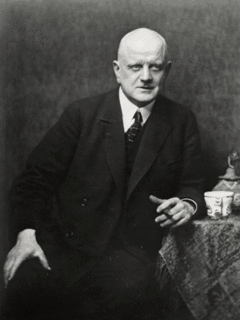
Tapiola, Op. 112, is a tone poem by the Finnish composer Jean Sibelius, written in 1926 on a commission from Walter Damrosch for the New York Philharmonic Society. Tapiola portrays Tapio, the animating forest spirit mentioned throughout the Kalevala. It was premiered by Damrosch on 26 December 1926.
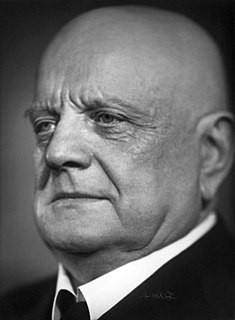
Andante Festivo is a single-movement composition by Jean Sibelius, originally scored for string quartet in 1922. In 1938, the composer rescored the piece for string orchestra and timpani. On 1 January 1939 Sibelius conducted his composition in a live worldwide broadcast, making it the only sound document of him interpreting his own music.

Jussi Jalas was a Finnish conductor and composer.

The Soothsayer is the seventh album by Wayne Shorter, recorded in 1965, but not released on Blue Note until 1979. The album features five originals by Shorter and an arrangement of Jean Sibelius' "Valse Triste". An additional take of "Angola" was added to later CD releases.
The Tempest (Stormen), Op. 109, is incidental music to Shakespeare's The Tempest, by Jean Sibelius. He composed it in 1925–26, at about the same time as he wrote his tone poem Tapiola. Sibelius derived two suites from the score.

Ida Paulina Ekman was a Finnish soprano singer. She was also referred to as Ida Morduch-Ekman. Her career was mainly in oratorio and lieder, and she was a renowned interpreter of the songs of Jean Sibelius, many of which were dedicated to her and her husband Karl Ekman, with whose career her own was closely connected. Sibelius regarded her as his favourite singer.

Belshazzar's Feast, JS 48, is incidental music by Jean Sibelius to a play of the same name by the journalist, poet and playwright Hjalmar Fredrik Eugen Procopé (1868−1927).
Jedermann, Op. 83, is incidental music by Jean Sibelius to Hugo von Hofmannsthal's play of the same name. Sibelius composed the work on a commission from Jalmari Lahdensuo for the Finnish National Theatre in 1916. The music consists of 16 numbers, and it is scored for mixed chorus, orchestra, piano and organ. Robert Kajanus conducted the Helsinki City Orchestra in the first performance at Helsinki's National Theatre on 5 November 1916. Sibelius arranged in 1925−26 three movements for piano: Episodio, Scèna and Canzone.

Voces intimae, Op. 56, is a five-movement string quartet written in 1909 by the Finnish composer Jean Sibelius. He composed the work in D minor. It is the only major work for string quartet of his mature period.
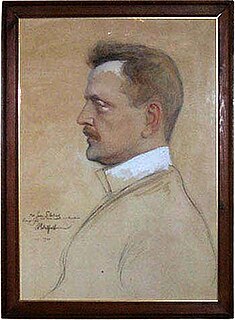
Snöfrid, Op. 29, is a melodrama or "improvisation for narrator, mixed choir and orchestra" by Jean Sibelius. He completed it in 1900 on a text by Viktor Rydberg. It was first performed in Helsinki on 20 October 1900, with the Orchestra of the Helsinki Philharmonic Society, conducted by Robert Kajanus.

Cassazione, Op. 6, is an orchestral composition by Jean Sibelius, composed in 1904 for the program introducing his Violin Concerto. Its title refers to the cassation, a genre similar to serenade, which was popular in the late 18th century. Sibelius structured the work in five "episodes". Although his opus numbers were already in the forties, he assigned the unused number Op. 6 to this work, implying an earlier composition date.

Kuolema, JS 113, is incidental music for orchestra by Jean Sibelius for a play of that title by Arvid Järnefelt, structured in six movements, originally scored for a string orchestra, a bass drum and a bell. He conducted the first performance at the Finnish National Theatre in Helsinki on 2 December 1903. He drew individual works from the score and revised them under two opus numbers:
Joseph Swensen is a conductor, violinist, and composer. He is winner of awards, including the Leventritt Foundation Sponsorship Award and the Avery Fisher Career Award. In 2000, Swensen was awarded an honorary doctorate from the University of St Andrews, Scotland. In 2014, he gave a TedX talk with the title “Habitats for Music and the Sound of Math” about music education and the developing brain, at the New York Institute of Technology.